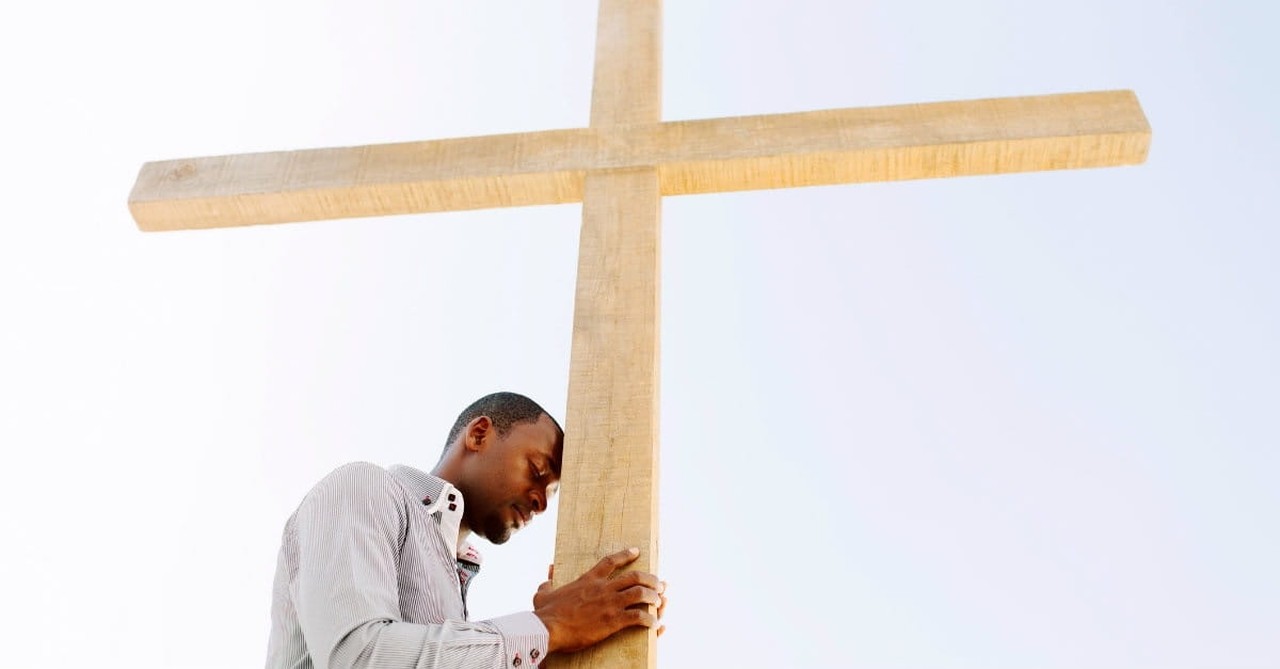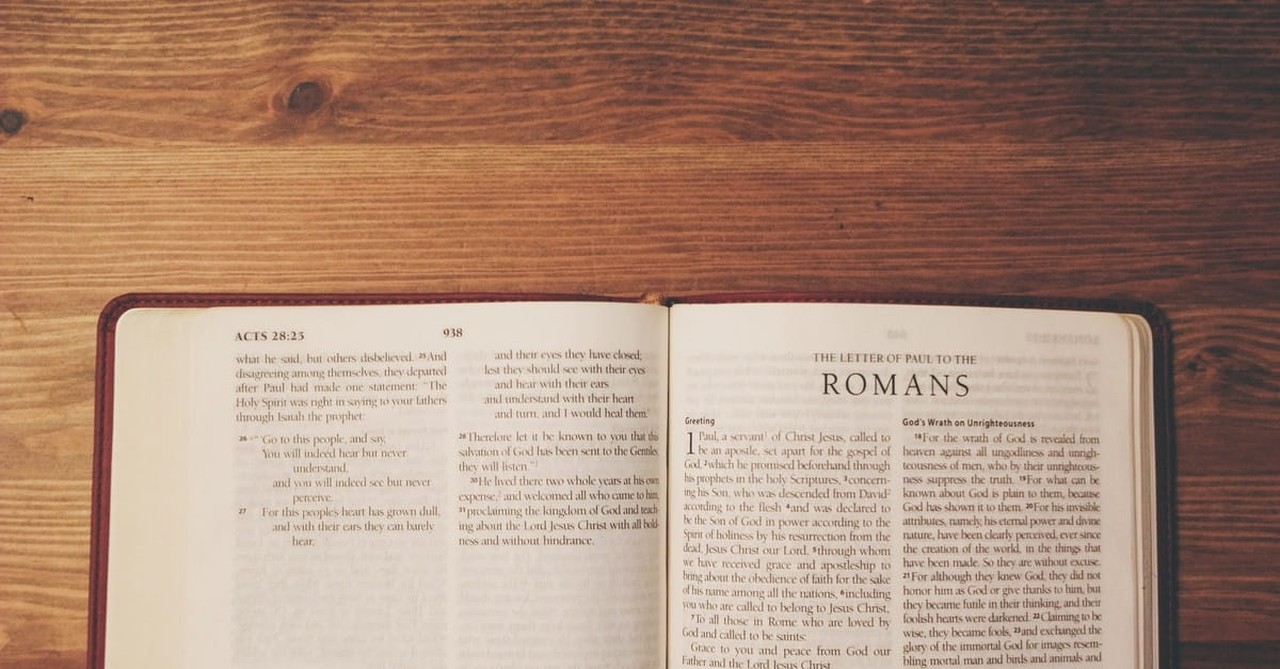10 Things You Should Know about Original Sin

Original sin sounds so archaic, so pessimistic, so grimly medieval. For heaven’s sake, this is the era of the computer and the space shuttle. And haven’t the most learned psychologists and sociologists assured us that people are by nature good, having been turned to their evil ways not by some inner instinct but through the influence of a deviant culture and sub-standard education? These questions indicate how important it is for us to understand the biblical notion of original sin. So here are ten things to keep in mind.
Photo Courtesy: Thinkstock
1. The Terminology of Original Sin

1. The Terminology of Original Sin
SLIDE 1 OF 10
The terminology of “original sin” has been used in any one of three ways. Often people think immediately of the “original” original sin, i.e., the first sin of Adam. Others use this language to refer to “inherited” sin, the idea that all humans are born morally corrupt and spiritually alienated from God. Finally, by “original sin” some are referring to the causal relationship between Adam’s sin and our sin. In this article we will be touching on all three elements.
Photo Courtesy: TImothy Eberly/Unsplash
2. The Clearest and Most Important Text on Original Sin

2. The Clearest and Most Important Text on Original Sin
SLIDE 2 OF 10
The clearest and most important text on original sin is Romans 5:12-21. A central point to keep in mind in studying this passage is that Paul's thought is distinctly corporate in nature. Douglas Moo explains:
"All people, Paul teaches, stand in relationship to one of two men, whose actions determine the eternal destiny of all who belong to them. Either one 'belongs to' Adam and is under sentence of death because of his sin, or disobedience, or one belongs to Christ and is assured of eternal life because of his 'righteous' act, or obedience. The actions of Adam and Christ, then, are similar in having ‘epochal’ significance. But they are not equal in power, for Christ's act is able completely to overcome the effects of Adam's. Anyone who 'receives the gift' that God offers in Christ finds security and joy in knowing that the reign of death has been completely and finally overcome by the reign of grace, righteousness, and eternal life (cf. vv. 17,21)” (Romans, 315).
Photo Courtesy: Lightstock
"Original Sin" in Romans 5

"Original Sin" in Romans 5
SLIDE 3 OF 10
It's important you read this passage in Romans 5 very carefully. Here it is:
12 Therefore, just as sin came into the world through one man, and death through sin, and so death spread to all men because all sinned—13 for sin indeed was in the world before the law was given, but sin is not counted where there is no law. 14 Yet death reigned from Adam to Moses, even over those whose sinning was not like the transgression of Adam, who was a type of the one who was to come. 15 But the free gift is not like the trespass. For if many died through one man's trespass, much more have the grace of God and the free gift by the grace of that one man Jesus Christ abounded for many. 16 And the free gift is not like the result of that one man's sin. For the judgment following one trespass brought condemnation, but the free gift following many trespasses brought justification. 17 For if, because of one man's trespass, death reigned through that one man, much more will those who receive the abundance of grace and the free gift of righteousness reign in life through the one man Jesus Christ. 18 Therefore, as one trespass led to condemnation for all men, so one act of righteousness leads to justification and life for all men. 19 For as by the one man's disobedience the many were made sinners, so by the one man's obedience the many will be made righteous. 20 Now the law came in to increase the trespass, but where sin increased, grace abounded all the more, 21 so that, as sin reigned in death, grace also might reign through righteousness leading to eternal life through Jesus Christ our Lord.
Photo Courtesy: Thinkstock
3. "Through One Man" Sin Came into the World

3. "Through One Man" Sin Came into the World
SLIDE 4 OF 10
In v. 12 Paul says that “through one man” sin came into the world. Adam was a historical figure. He had a mind, a body, and a spirit just as we do. He lived in space-time history just as we do, in a geographical location no less than you or I (see 1 Tim. 2:13-15; Matt. 19:4; Mark. 10:6; 1 Cor. 15).
4. Sin's Inaugural Entry
Through this one man, says Paul, “sin entered into the world.” Literally, sin invaded the world. This does not mean Adam was the first sinner; Eve was. It does not mean that sin began its existence at that time in the Garden of Eden. Paul says sin entered, not that it began to be. Sin already existed as a result of Satan's rebellion. This text speaks of sin's inaugural entry into the world of humanity. Sin, therefore, is portrayed as an intruder. It was not a constituent element in the original creation.
Photo Courtesy: Unsplash/Caleb Jones
5. Sin is the Cause of Human Death
.1200w.tn.jpg)
5. Sin is the Cause of Human Death
SLIDE 5 OF 10
The next important phrase reads, “and death through sin” (see Gen. 2:17; Ezek. 18:4; Rom. 6:23; James 1:15). His point is that sin is the cause of human death. Thus, death is a penal evil; it is punishment. Death was not inevitable for Adam and Eve. It was the punishment for rebellion. Death in Scripture may be portrayed in one of three ways. There is, first of all, spiritual death (the alienation of the soul from God and the subsequent spiritual corruption of the whole person; cf. Eph. 2:1-2). Second is physical death, which needs no explanation. Finally, there is the second death, which is the perpetuation of spiritual death into eternity. The second death entails eternal separation and alienation from God (cf. Rev. 2,20). The remedy for spiritual death is regeneration or the new birth. The remedy for physical death is the bodily resurrection. There is no remedy for the second death. It is irremediable, irrevocable, and eternal.
6. Adam's Sin and its Consquences Did Not Stop with Him
This death, says the apostle, “spread to all men.” In other words, Adam's sin and its consequences did not stop with him. Physical death as a penal sanction is universal. But why do all die? The answer is found in our next important phrase: “because all sinned” . . .
Photo Courtesy: Thinkstock
7. Adam Was Constituted the Covenant Head of His Posterity

7. Adam Was Constituted the Covenant Head of His Posterity
SLIDE 6 OF 10
The declaration “because all sinned” is surely the most difficult statement in this complex paragraph and has been interpreted in a number of different ways. My focus here, however, will only be on what the view known as Federalism or Covenant representation.
This view does not deny the reality of a seminal or realistic union of the species in Adam. Neither does it deny that the sinful disposition is transmitted from Adam to his posterity by means of natural propagation. However, advocates of what is called the “representative” or “federal headship” doctrine do deny that this natural solidarity is sufficient to explain the imputation of Adam’s sin to his posterity. The representative view insists that by divine appointment, in addition to being the natural head of the species, Adam was constituted the covenant head of his posterity. Therefore, the ground on which the guilt of the first sin is imputed to the species is that divinely ordained representative principle on the basis of which the species is reckoned to have stood its probation in Adam.
Photo Courtesy: Karl Fredrickson/Unsplash
8. Union Between Adam and Us

8. Union Between Adam and Us
SLIDE 7 OF 10
The view of covenant headship points to v. 12 where Paul says all die because all sinned. But in vv. 15-19 Paul says all die because Adam sinned. In both statements Paul is saying the same thing. But how can it be that the sin of one man, Adam, is also the sin of all men? The answer is that there is some kind of union or solidarity between Adam and us. It can't simply be a physical or natural union, as the realists contend. It must be a legal or representative union, i.e., a covenant union. God entered into covenant with Adam as representative head of the human race. God dealt with Adam as with all his posterity.
Thus, we became guilty of Adam's sin and suffer its penalty, not because we personally committed a sin like Adam's sin, as the Pelagians argue, nor because we sinned in Adam as our physical or biological root, as the Realists insist, but because Adam served in the capacity as covenant head of the human race. Similarly, we become righteous because of Christ's obedience, and experience the life it brings, not because we personally obeyed, but because our covenant head, Jesus, obeyed (see 1 Cor. 15:21ff.).
Photo Courtesy: Sage Kirk/Unsplash
Whereas Adam Ruined Us, Christ Renewed Us

Whereas Adam Ruined Us, Christ Renewed Us
SLIDE 8 OF 10
What the doctrine of original sin means is that whereas Adam ruined us, Christ renewed us. As we are condemned for the sin of the first Adam, we are justified because of the obedience of the last Adam. This is why Adam is called the type of Christ in Rom. 5:14. According to this view, God has not dealt with men as with a field of corn, each standing for himself, or as pebbles of sand on the shore, each person isolated and independent of all others. Rather he has dealt with men as with a tree, all the branches sharing a common root. While the root remains healthy, the branches remain healthy. When the axe cuts and severs the root, all die.
Photo Courtesy: Unsplash/Matheus Ferrero
9. Only if Adam Represents You in the Garden Can Jesus Represent You on Golgotha

9. Only if Adam Represents You in the Garden Can Jesus Represent You on Golgotha
SLIDE 9 OF 10
Before you object to the doctrine of covenant or representative headship, remember this: only if Adam represents you in the Garden can Jesus represent you on Golgotha. It was on the cross that Jesus served as your representative head: his obedience to the law, his righteousness, his suffering the penalty of the law, were all the acts of a covenant head acting in the stead and on behalf of his people. If Adam stood for you in the garden, Christ may also hang for you on the cross. If you insist on standing your own probation before God, instead of submitting to the covenant representation of Adam, you must also stand on your own in regard to righteousness. And how do you think you will fare? In other words, if you fall individually and by your own doing, it would appear you must be saved individually and by your own doing.
Photo Courtesy: Thinkstock/mbolina
10. By Nature, from Birth

10. By Nature, from Birth
SLIDE 10 OF 10
This brief discussion of the notion of original sin serves to confirm what we already know from experience: we are by nature, from birth, universally wicked. The so-called “enlightened” man of the 21st century may prefer not to think of himself in this way, choosing instead to dismiss what we’ve seen in Romans 5 as an overly pessimistic and outmoded view of human nature. But it is only when we fully realize and acknowledge in personal confession that “in Adam’s fall, we sinned all,” and that we are indeed morally corrupt and spiritually alienated from God that the salvation that is provided in Christ Jesus will be appealing to our souls.
This article originally appeared on SamStorms.org. Used with permission.
Photo Courtesy: Thinkstock
Originally published November 02, 2023.









